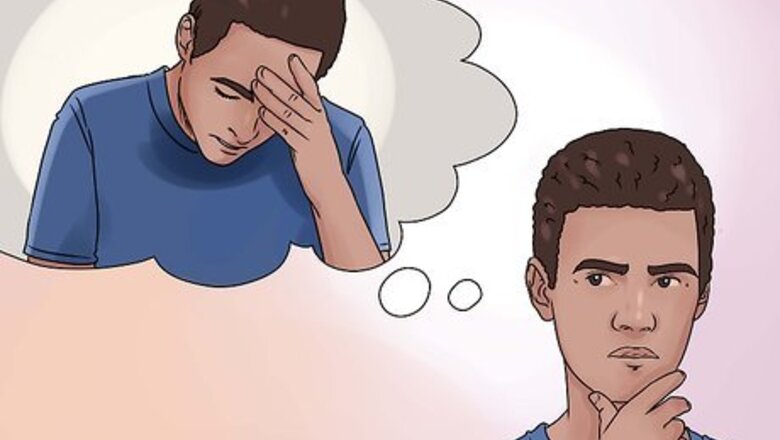
views
Considering Lifestyle Changes and Routines

Find the cause or source of your insomnia. Try to find what is preventing you from falling asleep and, if possible, eliminate it. You may need to fix other problems and issues first in order to treat your insomnia. For example: If anxiety or depression are keeping you awake at night, find what is making you feel anxious or depressed and try to manage that. This might involve speaking with your doctor and taking medication for anxiety or depression. Your roommate might like to read or work late into the night, and the light he or she uses is keeping you awake. If your roommate is unable or refuses to work in another room, purchase a sleeping mask instead.
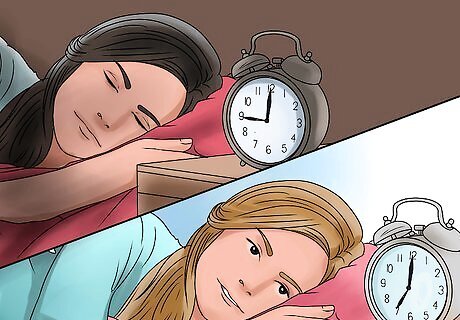
Establish a nightly routine. Try to perform the same activities every night before your bedtime. This means going to bed at the same time every evening and waking up at the same time every morning. You can also incorporate some relaxing activities into your bedtime routine, such as reading or listening to soft music. In this way, your mind will start associating such activities with bedtime and sleep.
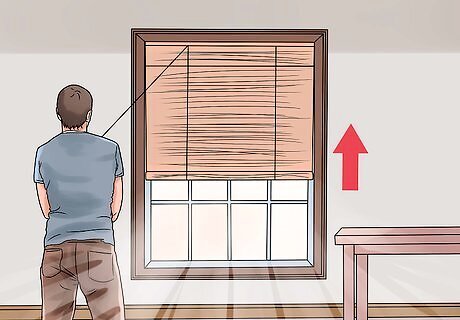
Make sure your bedroom is comfortable before going to sleep. This means that the temperature is to your liking, and that the lighting is dark enough for you to fall asleep. If your room is too warm, try to cool it down by opening a window, using fewer blankets, or turning a fan or air conditioning. If your room is too cold, try to wear warmer clothing to sleep or using more blankets. If you live in an area that is very bright at night, even if you turn off the lights, invest in a sleeping mask that covers your eyes.
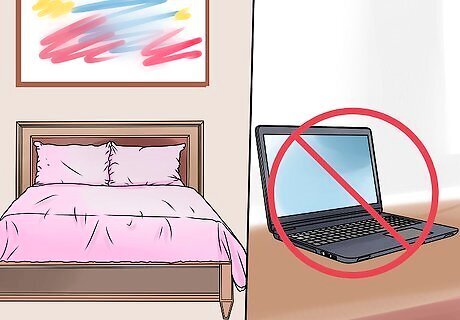
Keep your bedroom as your bedroom and nothing else. Use your bedroom only for sleeping and rest. This might involve removing distractions, such as computers and televisions, to ensure that you do not use them instead of sleeping. It might also mean that you have to complete your homework (or other work) in another room. If you live in a studio apartment where everything is in a single room, or if it is not possible to work elsewhere, then do all of your work at your desk, in a library, or some other location. Do not work in your bed, as your subconscious will begin to associate your bed with working instead of sleeping.
Using Medications
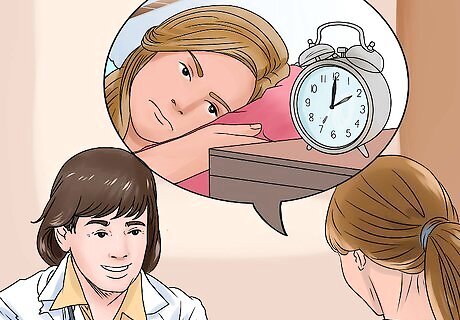
See your healthcare provider. If you find that you experience insomnia regularly, you may have an underlying illness or condition that requires professional treatment. Speak with your doctor. He or she may prescribe medication for your insomnia, or diagnose you with an underlying condition that causes insomnia and assign treatment for that.
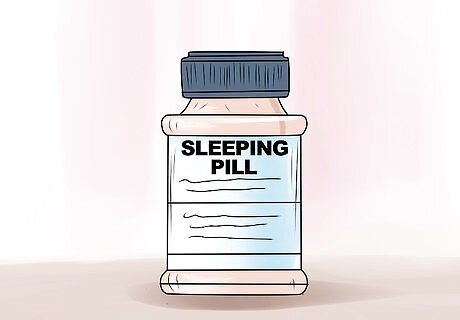
Take an over-the-counter pill. There are numerous over-the-counter medications available for helping alleviate insomnia, such as antihistamines and melatonin. Speak with your healthcare provider or pharmacist before purchasing one to ensure that you are selecting the right pill for you. Do not rely on over-the-counter pills. Avoid taking them more than once a week. Not only does the body become immune to them after a certain amount of time, but they may also have negative side-effects. Over-the-counter medications are intended to help you sleep, but not resolve your insomnia. If you are already taking prescribed medication for some other condition or ailment, consult your doctor or pharmacist first to ensure that the sleeping aid does not react negatively with your current prescription.
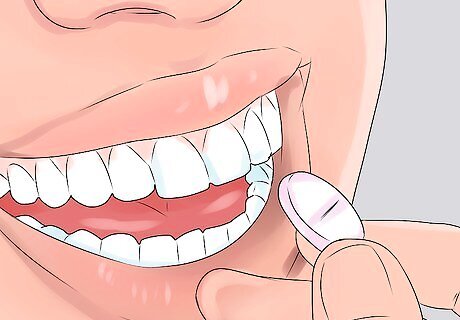
Take a prescribed pill. When you see your doctor regarding your insomnia, he or she may prescribe you some medication. Take your prescription according to the directions your doctor or pharmacist gives you.
Avoiding Stimulants

Don't drink caffeinated beverages in the evening. Try to avoid drinking anything with caffeine, such as coffee, black tea, or soda, at least 6 hours before going to bed. Caffeine is a stimulant, so it will make falling asleep difficult. If you must drink something hot before going to bed, opt for an herbal tea, such as chamomile, instead of a black tea.

Avoid heavy meals before bedtime. Eating meals that are too heavy or spicy before bedtime may cause some discomforts in your stomach, which might prevent you from falling asleep. Eating a light meal or snack, such as crackers, before going to bed is fine and will not disrupt your sleep.
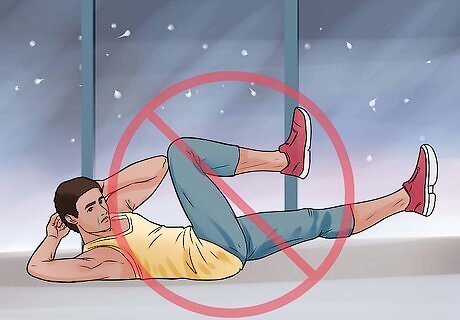
Avoid exercising before bedtime. While exercise is important for maintaining a healthy lifestyle, try not to exercise before going to bed. Plan your exercise or workout routine 3 to 4 hours before your bedtime.
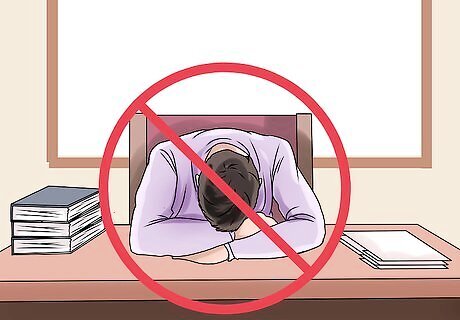
Try not to sleep or take naps during the day. Instead, reserve sleep for the evening. If you feel sleepy during the day, distract yourself by talking to a friend, doing some exercise, reading, or performing some other activity. Persistent napping during the day will detract from the amount and quality of sleep you get during the night.
Using Natural Remedies
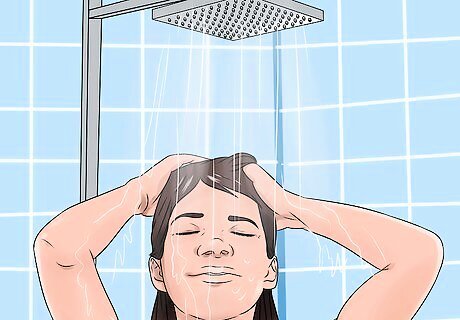
Take a hot bath or shower before going to sleep. Not only will this help you feel clean and refreshed, but it may also help you to relax. As your body begins to cool back down after the hot bath or shower, you may find that you are starting to feel sleepy.
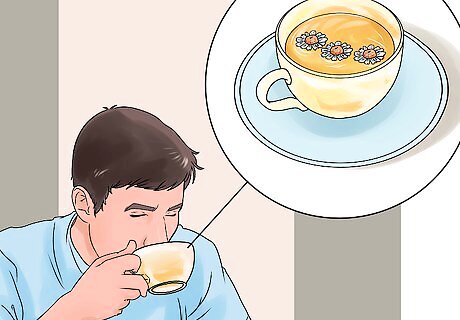
Drink some herbal tea. If you must drink something warm before going to bed, try an herbal tea instead. Some teas, such as chamomile tea, are reputed to help induce sleep, although there is no definite scientific evidence to prove this. If you have not tried herbal teas before, use caution. Some people are allergic to certain herbs, including chamomile.
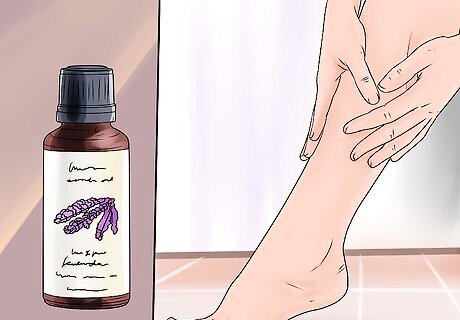
Try aromatherapy. Although there is no scientific research to back this, many people find that some herbs, such as lavender, reduce stress and induce calmness. You can try aromatherapy by massaging lavender oil into your skin, or by using it in a hot bath or diffuser. When massaging any oils into your skin, avoid the sensitive areas around the eye, nose, and mouth. Use caution with any aromatherapy if you have asthma.
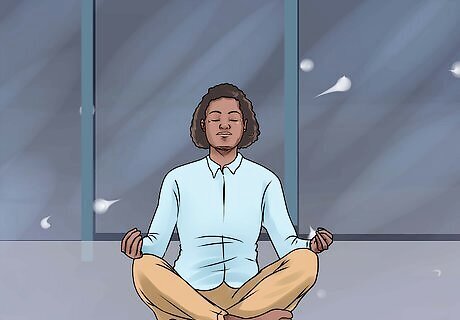
Perform a relaxing exercise or breathing exercise. If you cannot fall asleep, perform some sleep-inducing activities such as breathing exercises, yoga, or meditation.
















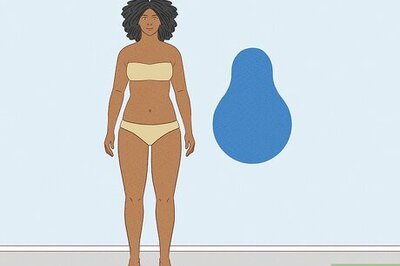



Comments
0 comment